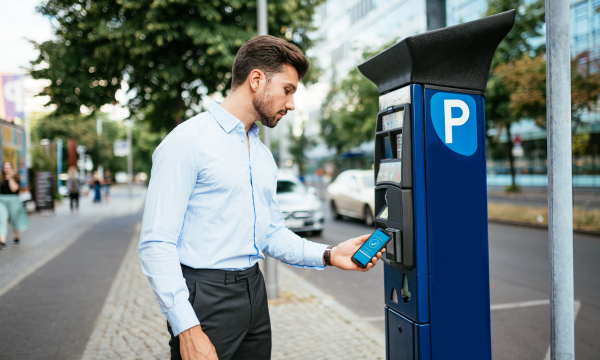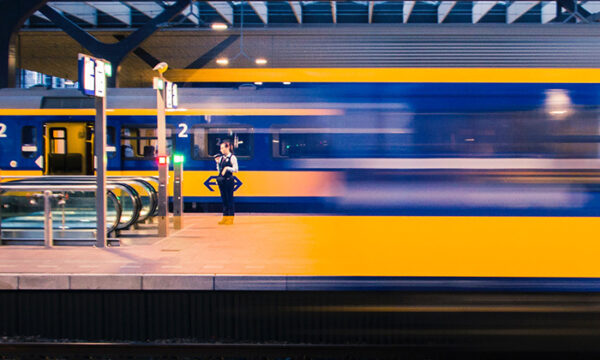
How the Deutschlandticket Solidifies Unlimited Public Transport in Germany
- 14 June 2023
- Mobility
With the launch of the Deutschlandticket on 1 May, commuters and travelers in Germany can now enjoy unlimited public transport across the entire country by purchasing a 49 euros-per-month subscription. The Deutschlandticket (sometimes referred to as the 49-Euro-Ticket), allows access to all local and regional buses and trains, trams, metros, and S-Bahn trains, connecting the entire country.
At XXImo, we’re excited about this development. We see it as a major win for commuters who are increasingly seeking flexible and sustainable transport options. We’ve included details about the Deutschlandticket for our customers in Germany who may be interested in this option. We would also like to share why we believe it is a promising step forward, and what we’re watching as the people begin subscribing to the ticket.
“The first days of the Deutschlandticket got off to a very successful start”
– Philipp Weinberg, Sales Manager Germany at XXImo
2022 kicked off with global inflation and rising energy prices already creating economic angst. Then, Russia’s invasion of Ukraine sparked an unprecedented energy crisis throughout Europe, and governments scrambled to ease the skyrocketing cost-of-living.
One of the more popular and successful government interventions was Germany’s introduction of the 9-Euro-Ticket , which allowed unlimited use of public local transportation across Germany for the summer of 2022. The subsidized 9-euro per month fare came at a high cost for the government and was not intended as a long-term solution. However, the program introduced public transport to a wide population who may have never considered commuting or travelling by public transport before. Germans cheered the simplicity of planning travel at a stable monthly cost. This also led to crowded trains, a sign of the success and popularity of the program. When the program ended, interest in a permanent replacement grew.
Launched on May 1, the Deutschlandticket fulfilled the growing mandate for a permanent and economically sustainable replacement for the 9-Euro-Ticket. Based on positive early sales, the new program projects to be a success too.
The Deutschlandticket offers unlimited travel on all local public transport. It is only available through a monthly subscription which, however, can be terminated on a monthly basis, starting at 49 euros per month (the cost may increase with inflation in the future). The subscription can be purchased at bahn.com, the DB Navigator app and Travel Centres or with any other transport association. XXImo customers can use their mobility card to pay for the subscription.
The flat rate greatly simplifies travel across different states and tariff zones. However, if you want to take a bicycle with you, you will still need to confirm the bicycle ticket requirements and restrictions for the applicable tariff zones.
The 49-euro subscription is only valid for second class. However, for some transport organisations first class upgrades are available for single journeys or on a monthly basis.
Finally, parents should be aware that children under 6 travel for free, but children 6 and up will need to purchase their own ticket.
The ticket does not include long distance or Deutsche Bahn trains, or long-distance coaches. We expect that the local governments and service providers will continue to negotiate and develop route solutions based on travel demands and capacities going forward, so it’s a good idea to stay up to date on the program’s details.
“The ticket is attractively priced for many other groups.”
- Philipp Weinberg, Sales Manager Germany
Public transport is a critical piece of the sustainability puzzle for Germany and throughout Europe as it reduces the number of vehicles on the road and decreases energy consumption. Amid Berlin’s goal of becoming climate-neutral by 2045, the Deutschlandticket should help increase the popularity of public transport and reduce carbon dioxide emissions. Its “9-Euro-Ticket” predecessor is estimated to have prevented about 1.8 billion tonnes of carbon dioxide emissions and reduced car journeys by about 10% during its three-month run.
The Deutschlandticket also allows flexible mobility choices for employees, and the permanence of the Deutschlandticket may result in further car trip reductions as more employees weigh the benefits of its simple and affordable pricing and consider public transport as a long-term option, particularly amid persistently high fuel costs.
But will commuters face the overcrowded trains seen last summer? That’s not likely. According to Philipp Weinberg, XXImo’s Sales Manager in Germany, “the system as a subscription makes it easier for transport associations to plan, and the higher entry price means that we will in all likelihood not experience the overcrowded trains of 2022.”
While widely lauded as a positive step forward, the Deutschlandticket has not been without its hiccups and criticisms. Having waited since last summer for a solution, hopeful subscribers may need to exercise some more patience during the adoption phase. Weinberg notes, “The first days of the Deutschlandticket got off to a very successful start. The demand was great. Unfortunately, the inadequate technical preparation of individual providers has often resulted in longer waiting times.”
There are other improvements that Weinberg points out: “As long as the inclusion of family members and bicycles is not uniformly and clearly regulated, it is up to the transport associations to attractively promote the ticket and develop it further.”
But Weinberg see the long-term benefits of the program. “First of all, it is a more than attractive solution for all commuters who previously relied on a job ticket. In addition, the ticket is attractively priced for many other groups.”
All signs point to a successful adoption of the new subscription-based program, but like any large-scale public program, there will be changes made in the future. It will be exciting to see how the Deutschlandticket will be adapted to increase its popularity, accommodate new customer demands, and improve the service. Will there perhaps be a variant for low-income earners and students? Will there be a link to other forms of mobility? And will it really be possible to change behavior from individual to public transportation on a large scale?
In any case, XXImo, as an established and innovative mobility platform, will be watching developments and continue to implement attractive mobility concepts within our ecosystem.
We’re excited to see this program launched. “In general, the Deutschlandticket fits perfectly with XXImo's philosophy, as there are dozens of different distribution channels for the ticket and the solution can be paid for, among other forms of mobility, using the XXImo card,” says Weinberg, “We are currently looking into integrating the Deutschlandticket into the Milo app. In general, the data can already be analysed on the basis of existing tools.”
The Deutschlandticket dovetails with XXImo’s mission make transport options more flexible, cost effective and environmentally friendly. It is great to see our customers in Germany purchasing the subscriptions with their XXImo’s mobility cards. As mobility issues become increasingly complex, we are also happy that the flat rate will make it even easier for companies to budget for and track their mobility expenses.
Is your company considering adding the Deutschlandticket to your mobility plans? Are you looking for other ways to fulfill your mobility ambitions? With the XXImo platform, the Milo app and the Visa network, we provide the ecosystem for every conceivable travel movement. If you’d like to know more, we’d love to hear from you. Please get in touch for a mobility consultation now.



